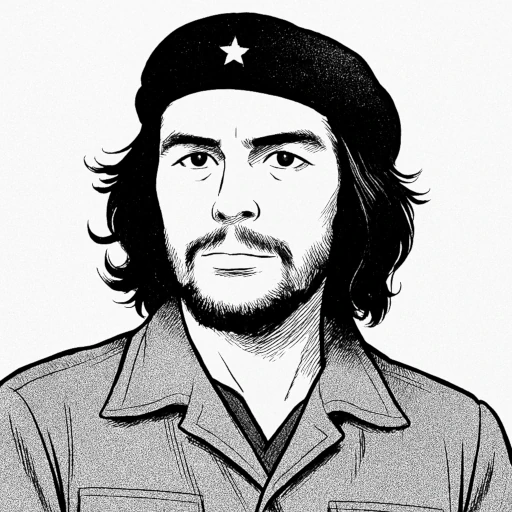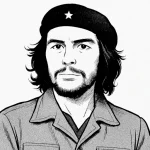“I have a wish. It as a fear as well – that in my end will be my beginning.”

- June 14, 1928 – October 9, 1967
- Born in Argentina
- Revolutionary, doctor, writer, politician
table of contents
Quote
“I have a wish. It as a fear as well – that in my end will be my beginning.”
Explanation
In this introspective and paradoxical statement, Che Guevara expresses both a hope and a fear that his death could mark the beginning of something greater—perhaps a continuation of the revolution or the spread of his ideas. The wish reflects Guevara’s deep conviction that his life’s work would transcend his own individual existence. For Guevara, the revolutionary cause was not just a personal mission but a movement that required sacrifice and that would, in some sense, only truly be realized through collective action. By stating that his end could be his beginning, he implies that his death might inspire further revolutionary action or serve as a catalyst for the spread of his ideals among others. It suggests that even in the face of his own mortality, he hoped to live on through the cause he dedicated his life to.
At the same time, this statement reveals a deep fear that his personal death might signify the end of a dream or a movement that he had so passionately believed in. Guevara’s sense of urgency in pursuing revolutionary change, whether in Cuba, the Congo, or Bolivia, suggests that he feared his death might prevent the larger revolutionary project from being realized or could signify a personal failure if the movement he envisioned did not continue beyond his life. This complex emotion encapsulates the tension in revolutionary thought: the hope that the ideals will endure, but the fear that without the individual’s presence, the movement might falter or fade away.
In a broader context, Guevara’s words can be seen as a reflection on the interplay between life and death in any significant cause. Whether in the context of activism, art, or politics, there is often a fear that personal sacrifice will go unrecognized or that a movement will lose momentum without its key figure. Yet, the idea of a death marking a beginning is also powerful because it challenges the notion of finality. History is full of movements and ideas that gained new momentum after the death of their leaders, from Mahatma Gandhi and Martin Luther King Jr. to Che Guevara himself. His words speak to the immortality of ideas—that even in death, the ideas of a revolution can spark further action, carrying the struggle forward into new generations.
Would you like to share your impressions or related stories about this quote in the comments section?
